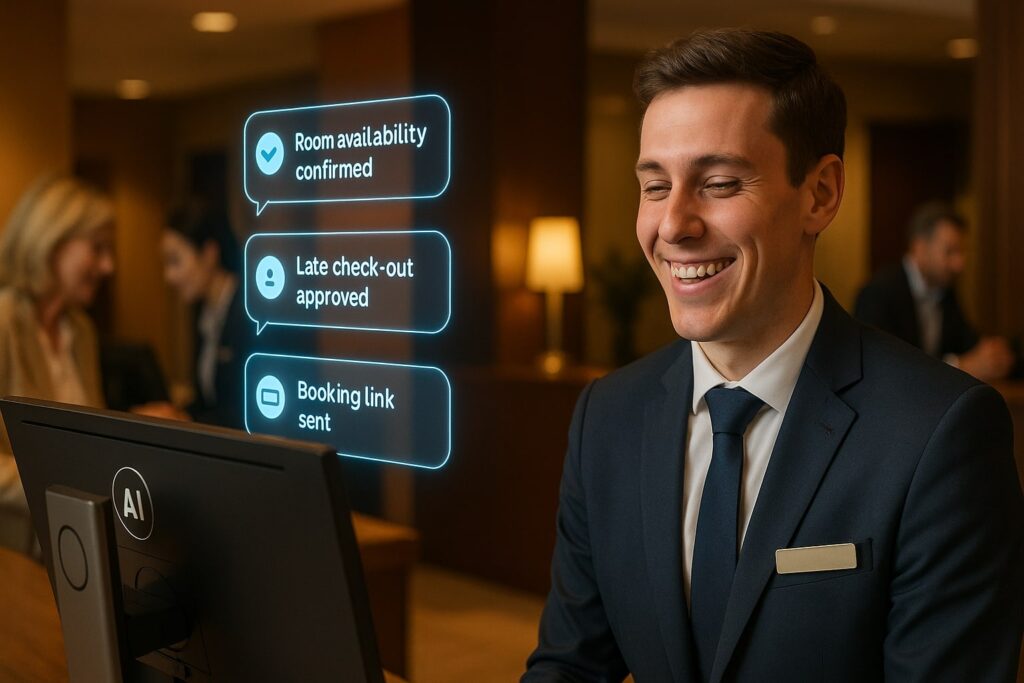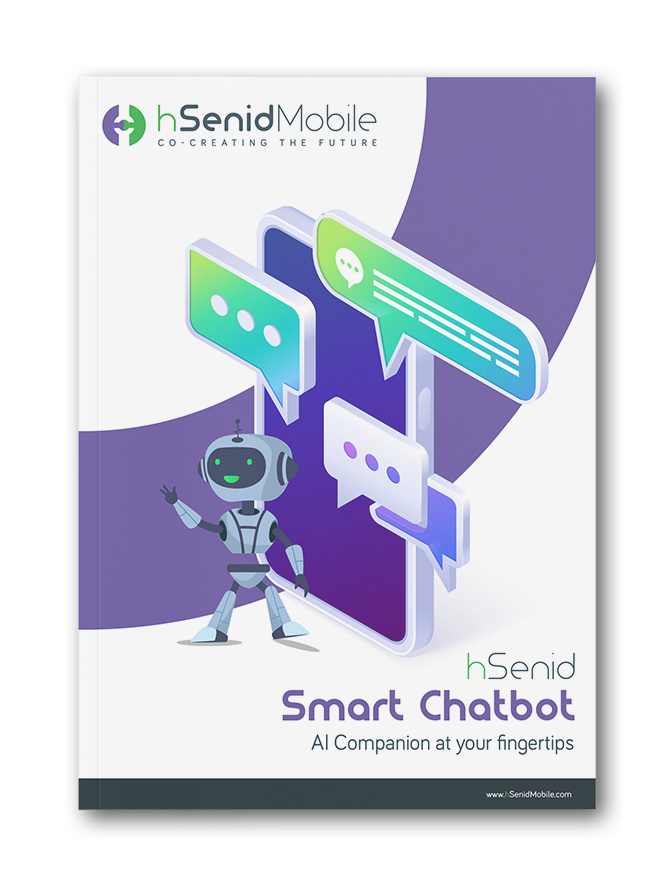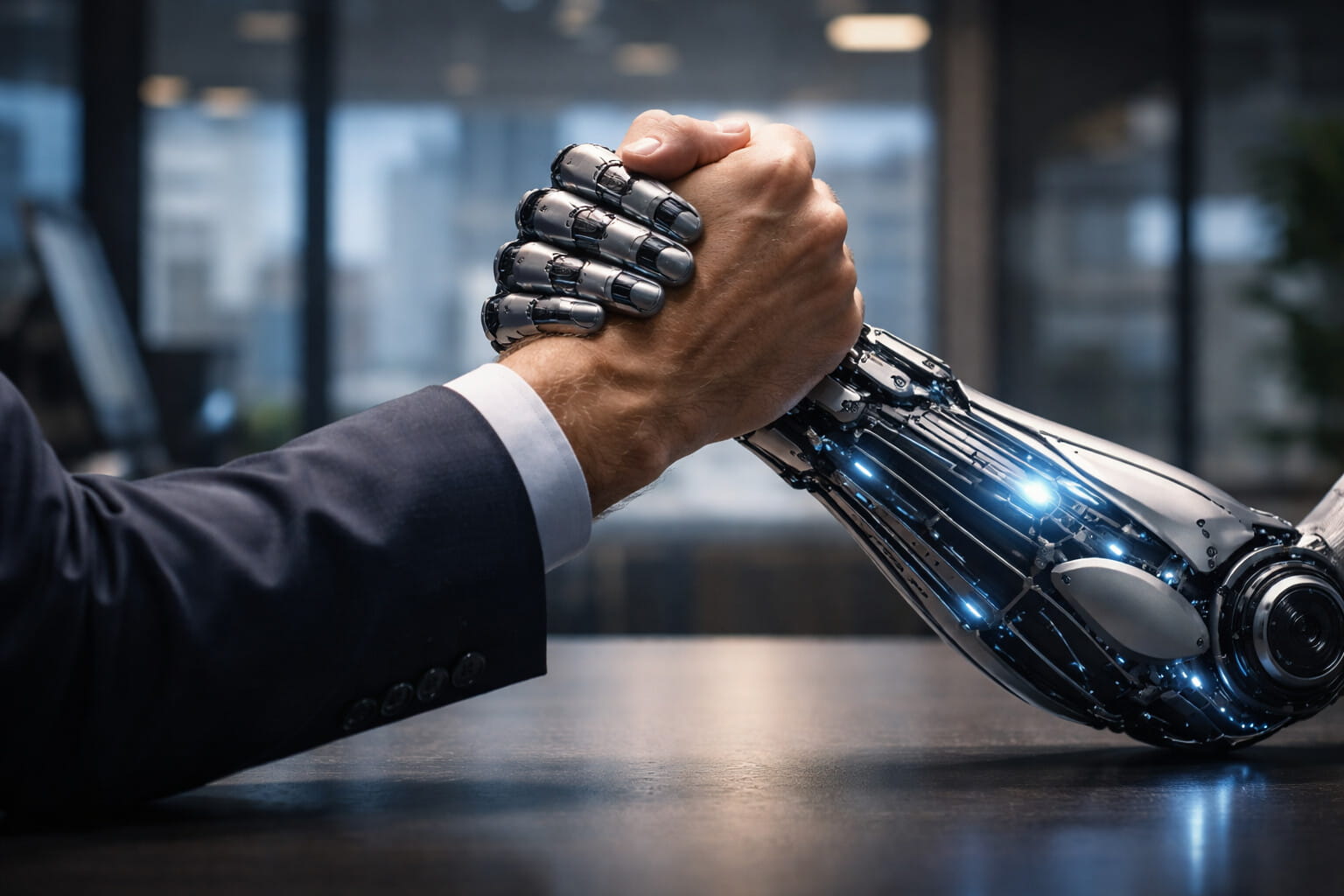It started with a problem that nearly every hospitality business knows all too well; endless repetitive guest queries, delayed response times, and a team stretched far too thin. For one mid-sized boutique hotel, this wasn’t just a nuisance. It was a costly inefficiency eating into both customer satisfaction and the team’s bandwidth. The turning point came when the management decided to deploy a smart AI chatbot, not as a gimmick, but as a serious operations tool. Within a month, they were saving over 100 hours of staff time, all while delivering a faster, more personalized guest experience.
This isn’t a story about replacing humans. It’s a story about freeing them to do the work only they can do, while letting AI handle the rest.
1. The Silent Productivity Drain in Hotels
Every guest interaction matters in hospitality, but not every question requires a person to answer it. Before implementing the smart AI chatbot, the hotel’s front desk team was drowning in:
- Repetitive queries about check-in/check-out times
- Requests for directions to local attractions
- Room service menu questions
- Reservation modification requests
What made it worse was that most of these questions came after hours, forcing the hotel to either staff extra shifts or respond late, both costly options.
And here’s the kicker: industry data shows that guest expectations for instant answers are higher than ever, with 70% of travelers saying they’re more likely to book again if their queries are resolved quickly. This hotel wasn’t just losing time, it was losing future revenue.
2. The Smart AI Chatbot: Not Your Average FAQ Bot
When we talk about a smart AI chatbot, we’re not talking about a glorified search box. This hotel chose a solution built with natural language processing, contextual memory, and integration capabilities. It could understand complex questions, pull live data from booking systems, and even initiate tasks like confirming a reservation or sending a PDF of the spa menu.
Instead of giving guests generic responses, it adapted based on:
- The guest’s booking history
- Preferred language and tone
- Time of day (offering tailored recommendations for morning vs. evening)
That’s the difference between a bot that frustrates guests and one that delights them.
3. The 100+ Hours Saved: Where the Gains Came From
The numbers were eye-opening. After three months of implementation, the AI chatbot was handling 68% of all incoming inquiries without staff intervention.
Here’s where the hours were saved:
| Task Category | Time Saved per Month | How the Chatbot Helped |
|---|---|---|
| Booking modifications | 25 hours | Automated date changes & confirmations |
| Common guest queries | 40 hours | Instant answers to FAQs & local tips |
| Payment-related questions | 15 hours | Provided real-time billing info |
| Event & meeting space inquiries | 20 hours | Sent brochures, availability, and quotes instantly |
In total, this translated to over 100 staff hours freed up monthly, time that could be redirected toward guest experience improvements.
4. Beyond Time Savings: Revenue and Satisfaction Gains
- Upselling: The bot recommended room upgrades and special packages during interactions, increasing average booking value by 12%.
- 24/7 Availability: Guests could book a massage at 2 AM without waiting until morning.
- Consistent Branding: Every answer, whether at 10 AM or midnight, aligned perfectly with the hotel’s tone and service standards.
Guests noticed. Review mentions of “fast responses” and “helpful chat” increased significantly in the months after launch.
5. Why It Worked: Key Factors in the Hotel’s Success
- Deep System Integration: The chatbot wasn’t a standalone widget. It connected to the hotel’s property management system, CRM, and booking platform, allowing it to execute real actions instead of just providing information.
- Continuous Learning: The bot’s responses were refined weekly based on guest feedback and conversation analytics, making it smarter over time.
- Staff Buy-In: The hotel’s team saw the chatbot as an assistant, not a threat. This mindset shift meant they actively collaborated to make the bot better.
6. Addressing the Skepticism Around AI in Hospitality
Some in the hospitality industry worry that automation removes the “human touch.” In reality, when implemented correctly, it does the opposite. It ensures that every human interaction is higher quality because staff aren’t bogged down by low-value tasks.
Think about it: would you rather have your front desk agent spend ten minutes explaining how to log into the Wi-Fi, or personally welcome a newlywed couple with champagne?
In this case, the smart AI chatbot handled the routine, so staff could focus on the remarkable.
7. Lessons for Hotels Considering AI Chatbots
- Start with the top 20 recurring guest queries and train your chatbot to handle them flawlessly.
- Integrate it with your booking and CRM systems from day one.
- Review and optimize responses weekly, especially in the first 90 days.
- Communicate clearly with your team about how the bot supports their work.
Hotels that follow these steps often see measurable improvements in both operational efficiency and guest satisfaction within months.
8. The Future of Smart AI in Hospitality
The capabilities of smart AI chatbots are evolving rapidly. Soon, we’ll see bots that can predict guest needs before they’re expressed, based on behavioral data and contextual signals.
Imagine this: a returning guest books a room in December. The chatbot remembers they visited the spa during their last winter stay and automatically offers a seasonal spa package—without being prompted.
As AI becomes more intuitive, hotels that adopt early will have a significant competitive advantage, especially in a market where differentiation is often about service speed and personalization.
Conclusion: From Time Saved to Experience Elevated
Saving 100+ hours a month is impressive, but the real win for this hotel was the ability to deliver consistently excellent guest experiences without adding headcount. The smart AI chatbot wasn’t just a tool—it became part of the team.
Hospitality will always be about people. But with AI handling the repetitive, hotels can ensure their people spend more time doing what they do best: creating memorable stays. Discover more at hSenid Mobile. Explore how Smart Chatbot transforms your operations.








